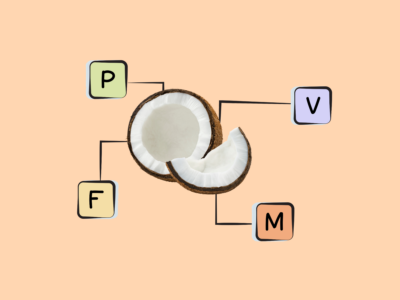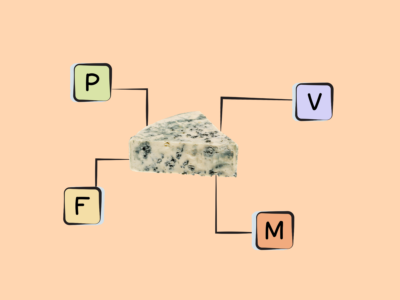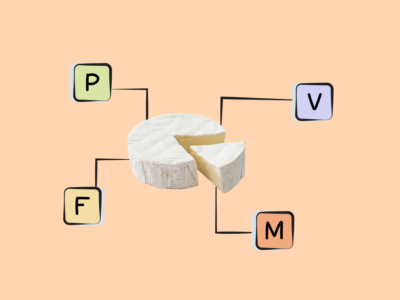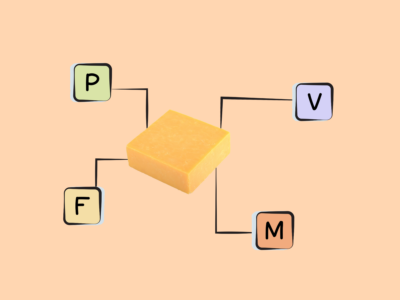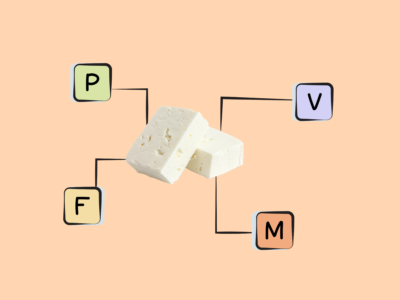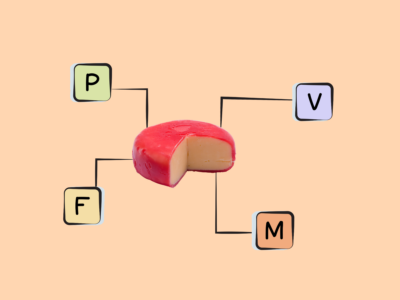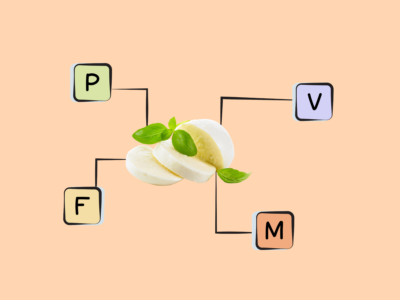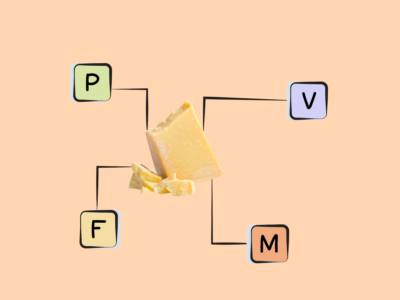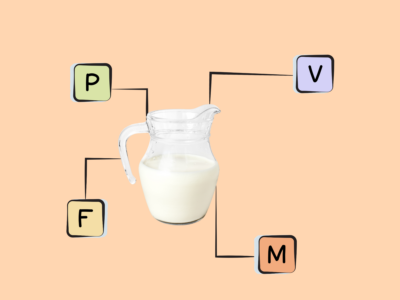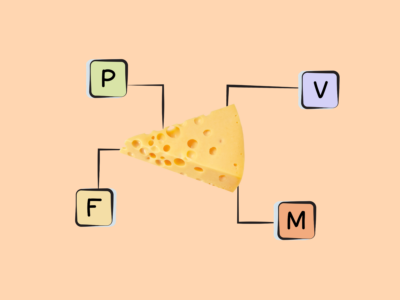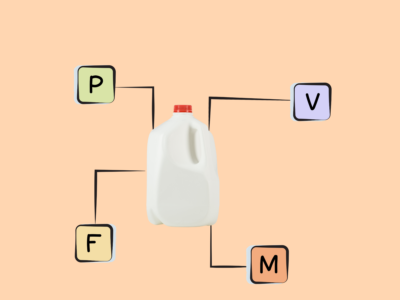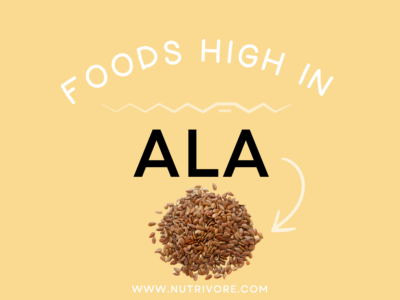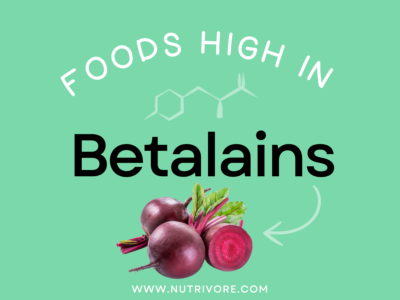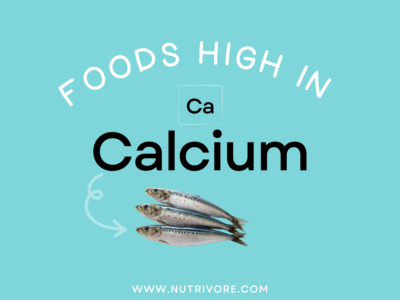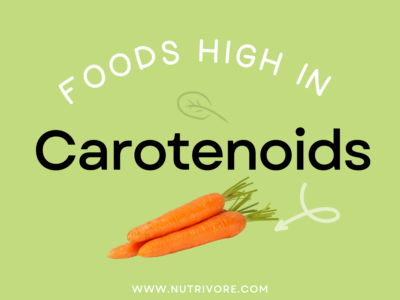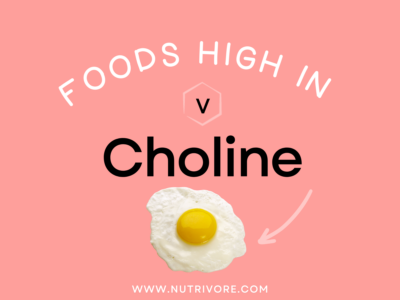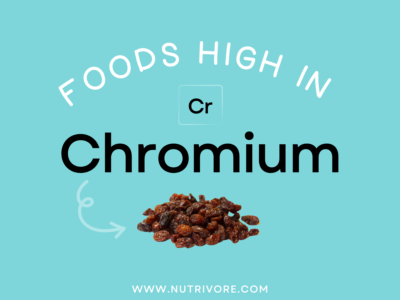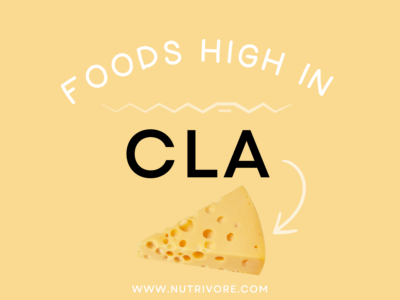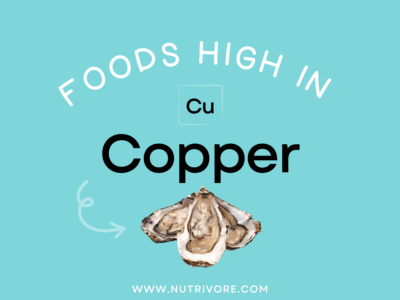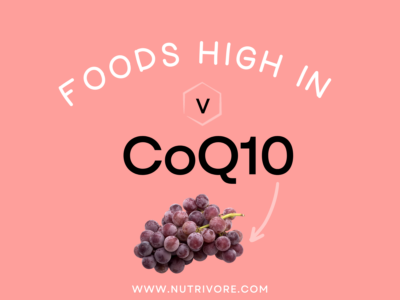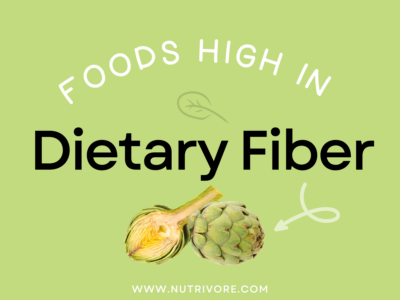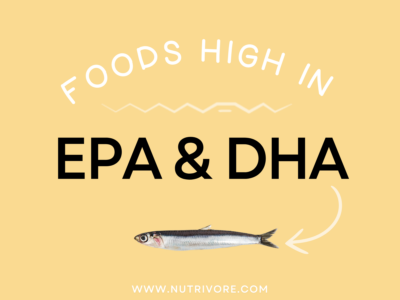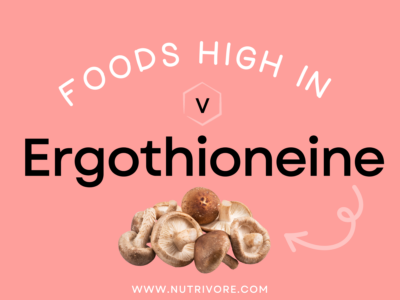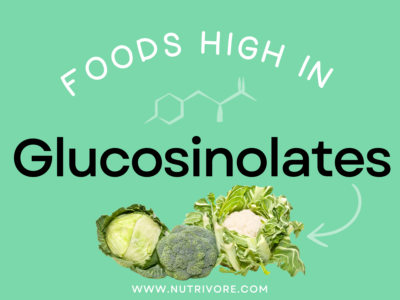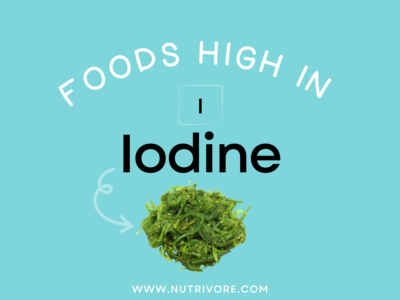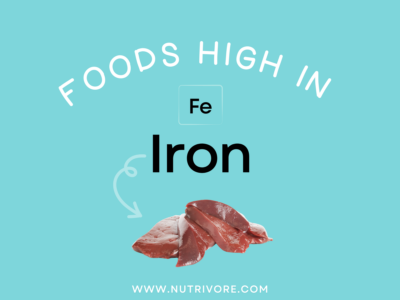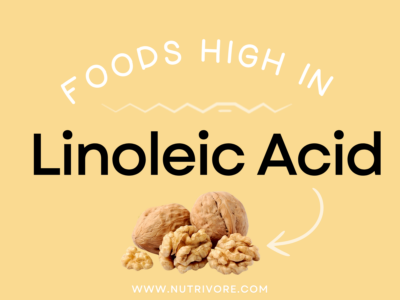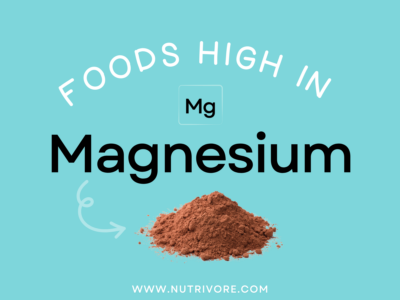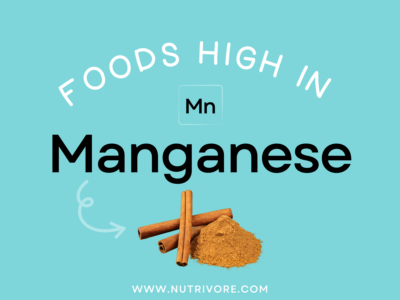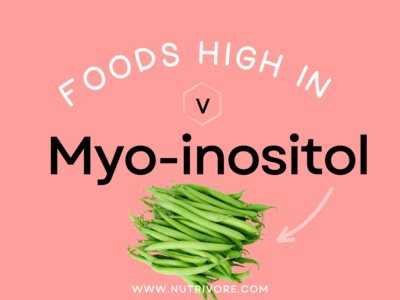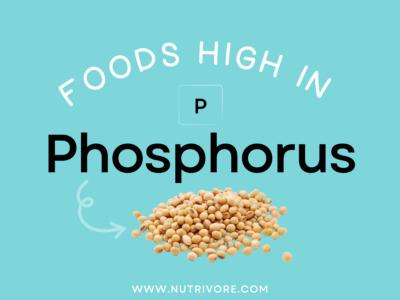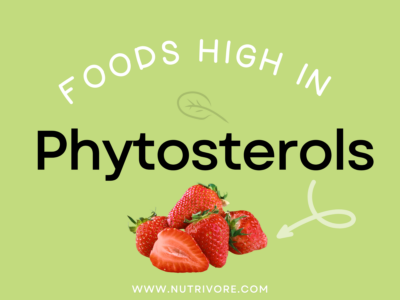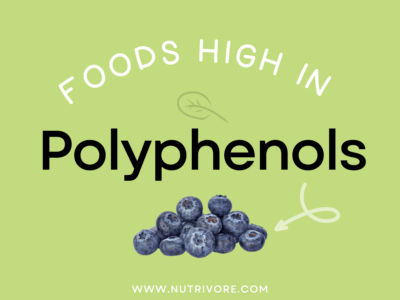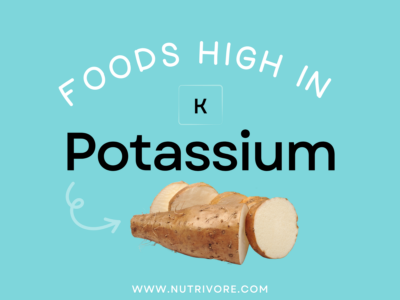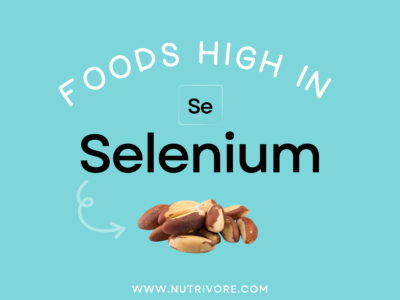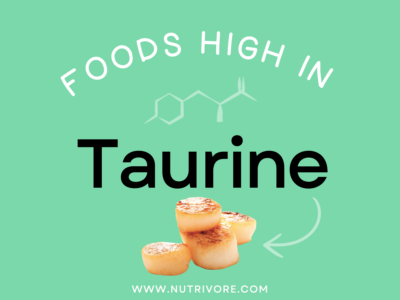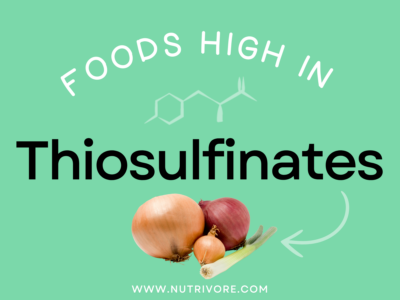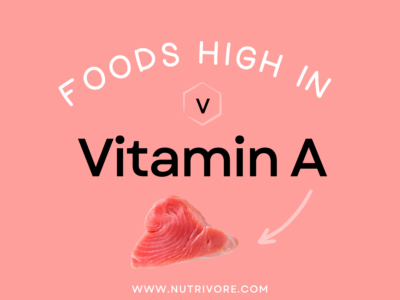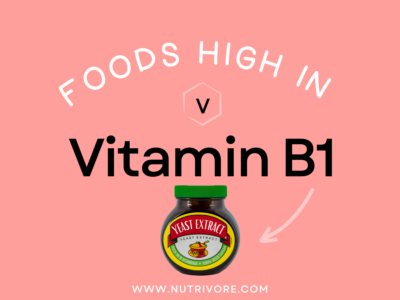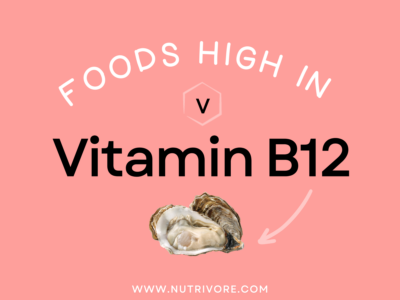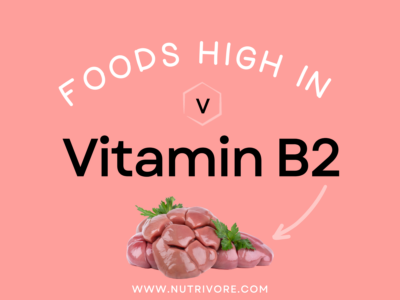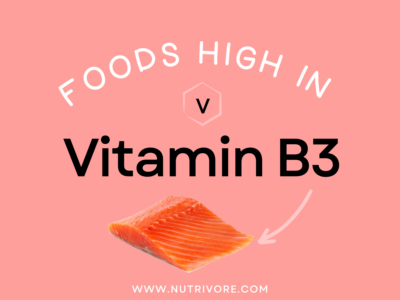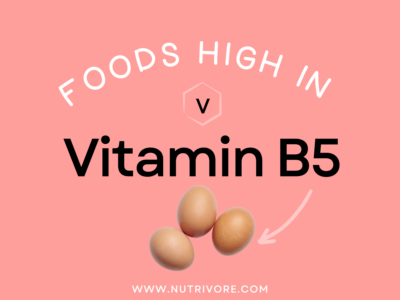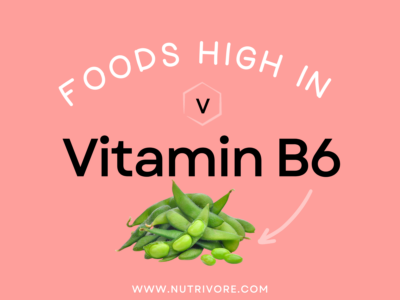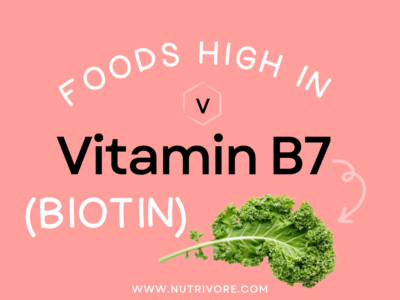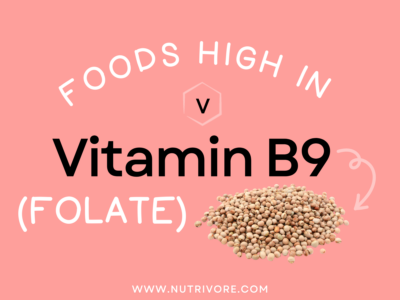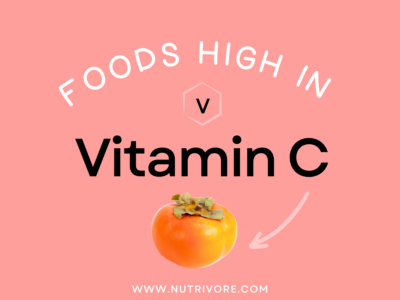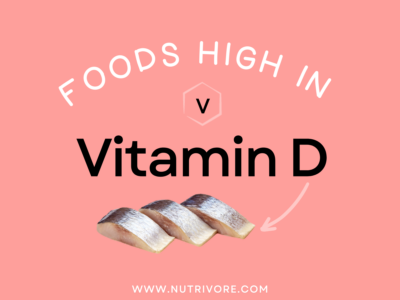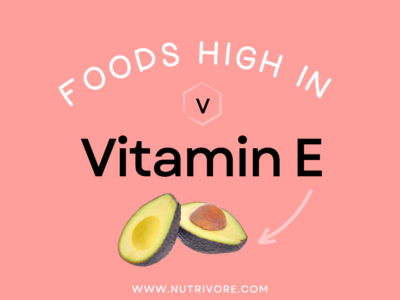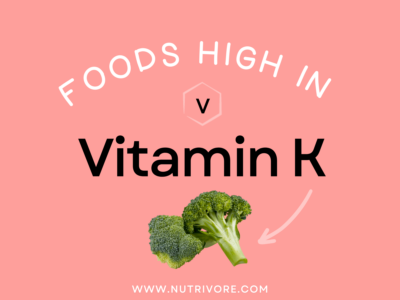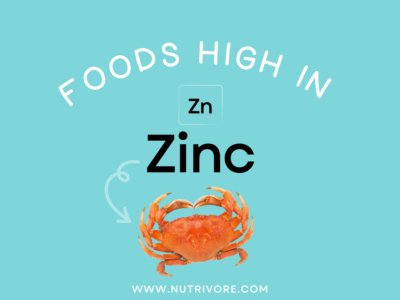Top 5 Common Food Sources of MCTs
Looking to get more medium chain triglycerides in your diet? Look no further! My team and I have crunched the numbers and did all the math to determine the top 5 common food sources of this fat, per serving. Getting enough MCTs as part of a healthy balanced diet is important since a large collection of studies show that getting nutrients from dietary supplements or multivitamins doesn’t improve health outcomes compared to getting nutrients from foods!
| Rank | Food | Nutrivore Score | Serving Size (Raw) | MCTs (g/serving) | % Recommended Target |
|---|---|---|---|---|---|
| 1 | Coconut Milk or Cream1 | 175 | 1 cup | 37.8 | 630 |
| 2 | Coconut Oil | 112 | 1 tbsp | 7.4 | 124 |
| 3 | Coconut Meat | 179 | 1 oz / 28 g | 5.4 | 90 |
| 4 | Cheese, Soft, Average2 | 141 | 1.5 oz / 40 g or 1/2 cup | 1.4 | 23 |
| 5 | Cheese, Hard, Average3 | 130 | 1.5 oz / 40 g | 1.1 | 18 |
2Soft cheese, average includes blue, brie, camembert, cottage (lowfat, 2%), cream, feta, goat (semi-soft), goat (soft), limburger, mozzarella (whole milk), muenster, ricotta (whole milk), and roquefort.
3Hard cheese, average includes cheddar, cheshire, colby, edam, fontina, gjetost, goat (hard type), gouda, gruyere, Monterey, parmesan, provolone, romano, swiss, and tilsit.
Want to know more about this important nutrient including health benefits of MCTs do in the body, how much MCTs we need, what happens if we have low levels of MCTs or if we get too much, and even more awesome MCT rich foods? Keep reading to learn all there is to know about this healthy fat!
Learn What Foods Are the Best Sources of Every Nutrient
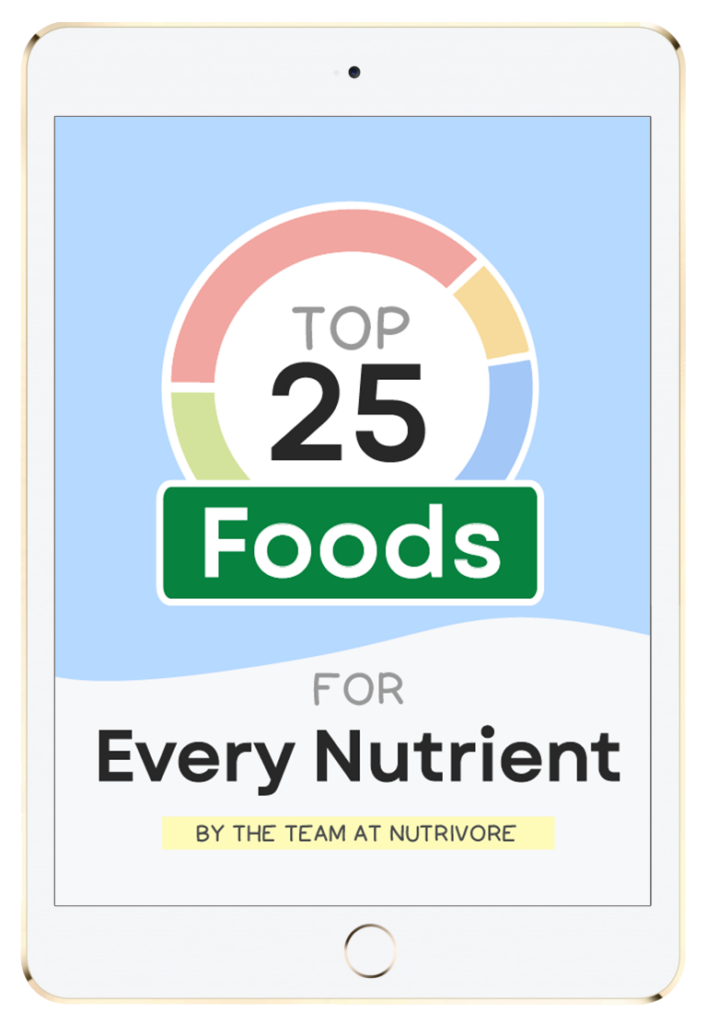
The Top 25 Foods for Every Nutrient
The Top 25 Foods for Every Nutrient e-book is a well-organized, easy-to-use, grocery store-friendly guide to help you choose foods that fit your needs of 43 important nutrients while creating a balanced nutrient-dense diet.
Get two “Top 25” food lists for each nutrient, plus you’ll find RDA charts for everyone, informative visuals, fun facts, serving sizes and the 58 foods that are Nutrient Super Stars!
Buy now for instant digital access.
What Are MCTs and What Do They Do?
Medium-chain triglycerides, or MCTs, are saturated fats composed of two more medium-chain fatty acids (that is, fatty acids with a 6 to 10 carbon atoms in their acyl chain). MCTs consist of caproic acid, caprylic acid, and capric acid; although lauric acid is often grouped in as well it’s not universally considered a “true” medium-chain fat since it displays some properties of long-chain triglycerides (LCTs). Compared to other fats, MCTs undergo an extremely rapid and direct digestive process, getting taken up by the intestine and shuttled to the liver (rather than undergoing bile exposure, enzymatic breakdown, passage through the lymph system, and entrance into systemic circulation like most other fats). This unique pathway gives MCTs an absorption rate similar to that of glucose, making them a quick energy source.
Numerous studies suggest that MCT supplementation can reduce body weight, improve body composition, induce spontaneous reductions in appetite and food intake, and increase resting energy expenditure—especially in people with higher initial body weight. These effects appear to stem from MCT’s ability to boost thermogenesis (heat generation), increase fat oxidation, and even increase the oxidation of other dietary fats. MCTs are also ketogenic, increasing serum ketone levels even in the absence of carbohydrate restriction (and potentially raising the carbohydrate threshold typically needed to induce ketosis).
There’s also evidence that MCTs could benefit diabetics by improving insulin sensitivity and increasing insulin production. And while more research is needed in these areas, some studies support a role of MCTs in boosting exercise performance (reducing lactic acid buildup and extending exercise duration) and boosting gut health (both by improving the composition of the microbiome and by protecting the architecture of the gut).
MCTs were initially used to help treat epilepsy; along with their independent effects, they can augment the effectiveness of anticonvulsants. They may also offer neurological benefits for Alzheimer’s patients, with some limited research suggesting MCTs can help improve cognition and memory, elevate the brain’s glutamate supply and GABA synthesis, and provide the brain with an alternative energy source to glucose.
Learn more about MCTs here.
MCT Deficiency
Since MCTs aren’t essential, there are no deficiency diseases or symptoms associated with a low intake.
Problems From Too Much MCTs
Research has shown that MCTs are generally safe, with daily doses of up to 1 g per kg of body weight considered safe for humans and other species. However, excessive long-term intake of MCT supplements can lead to gastrointestinal side effects such as diarrhea and gastric reflux. In animal studies, extremely high MCT consumption (constituting 25% of total energy intake) resulted in liver fat accumulation, despite beneficial effects like reduced body fat and improved insulin sensitivity. While it’s unclear if the same effects would occur in humans, caution is advised with very high MCT intake over time.
It’s also important to distinguish between the benefits of MCT oil supplements and MCT-containing foods, such as coconut oil, palm oil, and dairy products. Studies suggest that coconut oil, which contains both MCTs and longer-chain fats, is less effective at reducing appetite and food intake compared to pure MCT oil. Additionally, while MCT oil can significantly boost blood ketone levels, coconut oil does not have the same effect. Furthermore, coconut oil may raise LDL cholesterol more than pure MCTs due to its content of lauric, myristic, and palmitic acids—saturated fats known to elevate LDL levels. Therefore, it’s crucial to consider the complete nutritional profile of foods when assessing their health impacts and always consult with a healthcare provider before supplementing.
How Much MCTs Do We Need?
Currently there are no official guidelines for MCT intake requirements but we have set a recommended target of 6 grams for adults based on Team Nutrivore’s review of the scientific literature, established with the aim of providing improvements for overall health and reduction in chronic disease risk.
Nutrient Daily Values
Nutrition requirements and recommended nutrient intake for infants, children, adolescents, adults, mature adults, and pregnant and lactating individuals.
More Food Sources of MCTs
MCTs are naturally found in coconut and coconut oil, palm kernel oil, and fatty dairy products from cows, sheep, horses, and goats.
Aside from coconut and dairy products, it is difficult to obtain MCTs from diet. Other food sources containing approximately 1% of the recommended target per serving include spices such as ginger, turmeric, and sage, lamb, lemon juice, duck, and goose.
Best Food Sources of MCT’s
The following foods have large amounts of MCTs, containing at least 3.0 grams per serving (at least 50% of the recommended target).
Good Food Sources of MCT’S
The following foods are good or excellent sources of MCTs, containing at least 0.6 grams per serving (up to 3.0 grams).
Top 5 Common Food Sources
If you’re looking for top 5 common food sources of other important nutrients check out these posts!
cITATIONS
Expand to see all scientific references for this article.
Andersen JV, Westi EW, Jakobsen E, Urruticoechea N, Borges K, Aldana BI. Astrocyte metabolism of the medium-chain fatty acids octanoic acid and decanoic acid promotes GABA synthesis in neurons via elevated glutamine supply. Mol Brain. 2021 Sep 3;14(1):132. doi: 10.1186/s13041-021-00842-2.
Aminzadeh-Gohari S, Feichtinger RG, Vidali S, Locker F, Rutherford T, O’Donnel M, Stöger-Kleiber A, Mayr JA, Sperl W, Kofler B. A ketogenic diet supplemented with medium-chain triglycerides enhances the anti-tumor and anti-angiogenic efficacy of chemotherapy on neuroblastoma xenografts in a CD1-nu mouse model. Oncotarget. 2017 Aug 8;8(39):64728-64744. doi: 10.18632/oncotarget.20041.
Augustin K, Khabbush A, Williams S, Eaton S, Orford M, Cross JH, Heales SJR, Walker MC, Williams RSB. Mechanisms of action for the medium-chain triglyceride ketogenic diet in neurological and metabolic disorders. Lancet Neurol. 2018 Jan;17(1):84-93. doi: 10.1016/S1474-4422(17)30408-8.
Bach AC, Babayan VK. Medium-chain triglycerides: an update. Am J Clin Nutr. 1982 Nov;36(5):950-62. doi: 10.1093/ajcn/36.5.950.
Chamma CM, Bargut TC, Mandarim-de-Lacerda CA, Aguila MB. A rich medium-chain triacylglycerol diet benefits adiposity but has adverse effects on the markers of hepatic lipogenesis and beta-oxidation. Food Funct. 2017 Feb 22;8(2):778-787. doi: 10.1039/c6fo01663d.
Chang P, Augustin K, Boddum K, Williams S, Sun M, Terschak JA, Hardege JD, Chen PE, Walker MC, Williams RS. Seizure control by decanoic acid through direct AMPA receptor inhibition. Brain. 2016 Feb;139(Pt 2):431-43. doi: 10.1093/brain/awv325.
Chang P, Terbach N, Plant N, Chen PE, Walker MC, Williams RS. Seizure control by ketogenic diet-associated medium chain fatty acids. Neuropharmacology. 2013 Jun;69:105-14. doi: 10.1016/j.neuropharm.2012.11.004.
Clegg ME. Medium-chain triglycerides are advantageous in promoting weight loss although not beneficial to exercise performance. Int J Food Sci Nutr. 2010 Nov;61(7):653-79. doi: 10.3109/09637481003702114.
Croteau E, Castellano CA, Richard MA, Fortier M, Nugent S, Lepage M, Duchesne S, Whittingstall K, Turcotte ÉE, Bocti C, Fülöp T, Cunnane SC. Ketogenic Medium Chain Triglycerides Increase Brain Energy Metabolism in Alzheimer’s Disease. J Alzheimers Dis. 2018;64(2):551-561. doi: 10.3233/JAD-180202.
Cunnane SC, Courchesne-Loyer A, Vandenberghe C, St-Pierre V, Fortier M, Hennebelle M, Croteau E, Bocti C, Fulop T, Castellano CA. Can Ketones Help Rescue Brain Fuel Supply in Later Life? Implications for Cognitive Health during Aging and the Treatment of Alzheimer’s Disease. Front Mol Neurosci. 2016 Jul 8;9:53. doi: 10.3389/fnmol.2016.00053.
D C Harvey CJ, Schofield GM, Williden M, McQuillan JA. The Effect of Medium Chain Triglycerides on Time to Nutritional Ketosis and Symptoms of Keto-Induction in Healthy Adults: A Randomised Controlled Clinical Trial. J Nutr Metab. 2018 May 22;2018:2630565. doi: 10.1155/2018/2630565.
Ferlito S, Lo Furno F, Munaò F, Lunetta M. Variazioni della glicemia, dell’insulinemia e della crasi lipemica dopo carico orale di glucosio e di trigliceridi a media catena in soggetti diabetici [Blood sugar, insulin, and blood lipid disorders after oral administration of glucose and medium-chain triglycerides in diabetics]. Minerva Dietol Gastroenterol. 1978 Jan-Mar;24(1):33-42. Italian. PMID: 740266.
García de Lorenzo A, Culebras JM. Acido linoleico y sistema inmune. Controversias sobre las emulsiones lipídicas [Linoleic acid and the immune system. Controversies about lipid emulsions]. Nutr Hosp. 1992 Nov-Dec;7(6):377-87. Spanish. PMID: 1477148.
Fushiki T, Matsumoto K, Inoue K, Kawada T, Sugimoto E. Swimming endurance capacity of mice is increased by chronic consumption of medium-chain triglycerides. J Nutr. 1995 Mar;125(3):531-9. doi: 10.1093/jn/125.3.531.
Fraser GE. Diet and coronary heart disease: beyond dietary fats and low-density-lipoprotein cholesterol. Am J Clin Nutr. 1994 May;59(5 Suppl):1117S-1123S. doi: 10.1093/ajcn/59.5.1117S. PMID: 8172111.
Han JR, Deng B, Sun J, Chen CG, Corkey BE, Kirkland JL, Ma J, Guo W. Effects of dietary medium-chain triglyceride on weight loss and insulin sensitivity in a group of moderately overweight free-living type 2 diabetic Chinese subjects. Metabolism. 2007 Jul;56(7):985-91. doi: 10.1016/j.metabol.2007.03.005.
Henderson ST, Vogel JL, Barr LJ, Garvin F, Jones JJ, Costantini LC. Study of the ketogenic agent AC-1202 in mild to moderate Alzheimer’s disease: a randomized, double-blind, placebo-controlled, multicenter trial. Nutr Metab (Lond). 2009 Aug 10;6:31. doi: 10.1186/1743-7075-6-31.
Hill JO, Peters JC, Yang D, Sharp T, Kaler M, Abumrad NN, Greene HL. Thermogenesis in humans during overfeeding with medium-chain triglycerides. Metabolism. 1989 Jul;38(7):641-8. doi: 10.1016/0026-0495(89)90101-7.
Kinsella R, Maher T, Clegg ME. Coconut oil has less satiating properties than medium chain triglyceride oil. Physiol Behav. 2017 Oct 1;179:422-426. doi: 10.1016/j.physbeh.2017.07.007.
Konagai C, Yanagimoto K, Hayamizu K, Han L, Tsuji T, Koga Y. Effects of krill oil containing n-3 polyunsaturated fatty acids in phospholipid form on human brain function: a randomized controlled trial in healthy elderly volunteers. Clin Interv Aging. 2013;8:1247-57. doi: 10.2147/CIA.S50349. Epub 2013 Sep 19. PMID: 24098072; PMCID: PMC3789637.
Krotkiewski M. Value of VLCD supplementation with medium chain triglycerides. Int J Obes Relat Metab Disord. 2001 Sep;25(9):1393-400. doi: 10.1038/sj.ijo.0801682.
Lin TY, Liu HW, Hung TM. The Ketogenic Effect of Medium-Chain Triacylglycerides. Front Nutr. 2021 Nov 18;8:747284. doi: 10.3389/fnut.2021.747284.
Liu YM. Medium-chain triglyceride (MCT) ketogenic therapy. Epilepsia. 2008 Nov;49 Suppl 8:33-6. doi: 10.1111/j.1528-1167.2008.01830.x.
Maher T, Clegg ME. A systematic review and meta-analysis of medium-chain triglycerides effects on acute satiety and food intake. Crit Rev Food Sci Nutr. 2021;61(4):636-648. doi: 10.1080/10408398.2020.1742654.
Mumme K, Stonehouse W. Effects of medium-chain triglycerides on weight loss and body composition: a meta-analysis of randomized controlled trials. J Acad Nutr Diet. 2015 Feb;115(2):249-263. doi: 10.1016/j.jand.2014.10.022.
Neal EG, Chaffe H, Schwartz RH, Lawson MS, Edwards N, Fitzsimmons G, Whitney A, Cross JH. A randomized trial of classical and medium-chain triglyceride ketogenic diets in the treatment of childhood epilepsy. Epilepsia. 2009 May;50(5):1109-17. doi: 10.1111/j.1528-1167.2008.01870.x.
Nosaka N, Kasai M, Nakamura M, Takahashi I, Itakura M, Takeuchi H, Aoyama T, Tsuji H, Okazaki M, Kondo K. Effects of dietary medium-chain triacylglycerols on serum lipoproteins and biochemical parameters in healthy men. Biosci Biotechnol Biochem. 2002 Aug;66(8):1713-8. doi: 10.1271/bbb.66.1713.
Nosaka N, Suzuki Y, Nagatoishi A, Kasai M, Wu J, Taguchi M. Effect of ingestion of medium-chain triacylglycerols on moderate- and high-intensity exercise in recreational athletes. J Nutr Sci Vitaminol (Tokyo). 2009 Apr;55(2):120-5. doi: 10.3177/jnsv.55.120.
Nosaka N, Suzuki Y, Suemitsu H, Kasai M, Kato K, Taguchi M. Medium-chain Triglycerides with Maltodextrin Increase Fat Oxidation during Moderate-intensity Exercise and Extend the Duration of Subsequent High-intensity Exercise. J Oleo Sci. 2018;67(11):1455-1462. doi: 10.5650/jos.ess18112.
Nosaka N, Tsujino S, Honda K, Suemitsu H, Kato K, Kondo K. Effect of Ingestion of Medium-Chain Triglycerides on Substrate Oxidation during Aerobic Exercise Could Depend on Sex Difference in Middle-Aged Sedentary Persons. Nutrients. 2020 Dec 24;13(1):36. doi: 10.3390/nu13010036.
Nosaka N, Tsujino S, Kato K. Short-Term Ingestion of Medium-Chain Triglycerides Could Enhance Postprandial Consumption of Ingested Fat in Individuals with a Body Mass Index from 25 to Less than 30: A Randomized, Placebo-Controlled, Double-Blind Crossover Study. Nutrients. 2022 Mar 7;14(5):1119. doi: 10.3390/nu14051119.
Papamandjaris AA, White MD, Jones PJ. Components of total energy expenditure in healthy young women are not affected after 14 days of feeding with medium-versus long-chain triglycerides. Obes Res. 1999 May;7(3):273-80. doi: 10.1002/j.1550-8528.1999.tb00406.x.
Papamandjaris AA, White MD, Raeini-Sarjaz M, Jones PJ. Endogenous fat oxidation during medium chain versus long chain triglyceride feeding in healthy women. Int J Obes Relat Metab Disord. 2000 Sep;24(9):1158-66. doi: 10.1038/sj.ijo.0801350.
Papandreou P, Gioxari A, Ntountaniotis D, Korda ON, Skouroliakou M, Siahanidou T. Administration of an Intravenous Fat Emulsion Enriched with Medium-Chain Triglyceride/ω-3 Fatty Acids is Beneficial Towards Anti-Inflammatory Related Fatty Acid Profile in Preterm Neonates: A Randomized, Double-Blind Clinical Trial. Nutrients. 2020 Nov 16;12(11):3526. doi: 10.3390/nu12113526. PMID: 33207743; PMCID: PMC7698253.
Poppitt SD, Strik CM, MacGibbon AK, McArdle BH, Budgett SC, McGill AT. Fatty acid chain length, postprandial satiety and food intake in lean men. Physiol Behav. 2010 Aug 4;101(1):161-7. doi: 10.1016/j.physbeh.2010.04.036.
Ota M, Matsuo J, Ishida I, Takano H, Yokoi Y, Hori H, Yoshida S, Ashida K, Nakamura K, Takahashi T, Kunugi H. Effects of a medium-chain triglyceride-based ketogenic formula on cognitive function in patients with mild-to-moderate Alzheimer’s disease. Neurosci Lett. 2019 Jan 18;690:232-236. doi: 10.1016/j.neulet.2018.10.048. Epub 2018 Oct 24. PMID: 30367958.
Reger MA, Henderson ST, Hale C, Cholerton B, Baker LD, Watson GS, Hyde K, Chapman D, Craft S. Effects of beta-hydroxybutyrate on cognition in memory-impaired adults. Neurobiol Aging. 2004 Mar;25(3):311-4. doi: 10.1016/S0197-4580(03)00087-3.
Rial SA, Karelis AD, Bergeron KF, Mounier C. Gut Microbiota and Metabolic Health: The Potential Beneficial Effects of a Medium Chain Triglyceride Diet in Obese Individuals. Nutrients. 2016 May 12;8(5):281. doi: 10.3390/nu8050281.
Sankararaman S, Sferra TJ. Are We Going Nuts on Coconut Oil? Curr Nutr Rep. 2018 Sep;7(3):107-115. doi: 10.1007/s13668-018-0230-5.
Sam QH, Ling H, Yew WS, Tan Z, Ravikumar S, Chang MW, Chai LYA. The Divergent Immunomodulatory Effects of Short Chain Fatty Acids and Medium Chain Fatty Acids. Int J Mol Sci. 2021 Jun 16;22(12):6453. doi: 10.3390/ijms22126453.
Sills MA, Forsythe WI, Haidukewych D, MacDonald A, Robinson M. The medium chain triglyceride diet and intractable epilepsy. Arch Dis Child. 1986 Dec;61(12):1168-72. doi: 10.1136/adc.61.12.1168.
St-Onge MP, Bosarge A, Goree LL, Darnell B. Medium chain triglyceride oil consumption as part of a weight loss diet does not lead to an adverse metabolic profile when compared to olive oil. J Am Coll Nutr. 2008 Oct;27(5):547-52. doi: 10.1080/07315724.2008.10719737. PMID: 18845704; PMCID: PMC2874191.
St-Onge MP, Bourque C, Jones PJ, Ross R, Parsons WE. Medium- versus long-chain triglycerides for 27 days increases fat oxidation and energy expenditure without resulting in changes in body composition in overweight women. Int J Obes Relat Metab Disord. 2003 Jan;27(1):95-102. doi: 10.1038/sj.ijo.0802169.
St-Onge MP, Jones PJ. Greater rise in fat oxidation with medium-chain triglyceride consumption relative to long-chain triglyceride is associated with lower initial body weight and greater loss of subcutaneous adipose tissue. Int J Obes Relat Metab Disord. 2003 Dec;27(12):1565-71. doi: 10.1038/sj.ijo.0802467.
St-Onge MP, Jones PJ. Physiological effects of medium-chain triglycerides: potential agents in the prevention of obesity. J Nutr. 2002 Mar;132(3):329-32. doi: 10.1093/jn/132.3.329. PMID: 11880549.
St-Onge MP, Mayrsohn B, O’Keeffe M, Kissileff HR, Choudhury AR, Laferrère B. Impact of medium and long chain triglycerides consumption on appetite and food intake in overweight men. Eur J Clin Nutr. 2014 Oct;68(10):1134-40. doi: 10.1038/ejcn.2014.145.
Sung MH, Liao FH, Chien YW. Medium-Chain Triglycerides Lower Blood Lipids and Body Weight in Streptozotocin-Induced Type 2 Diabetes Rats. Nutrients. 2018 Jul 26;10(8):963. doi: 10.3390/nu10080963.
Symersky T, Vu MK, Frölich M, Biemond I, Masclee AA. The effect of equicaloric medium-chain and long-chain triglycerides on pancreas enzyme secretion. Clin Physiol Funct Imaging. 2002 Sep;22(5):307-11. doi: 10.1046/j.1475-097x.2002.00435.x. PMID: 12487002.
Traul KA, Driedger A, Ingle DL, Nakhasi D. Review of the toxicologic properties of medium-chain triglycerides. Food Chem Toxicol. 2000 Jan;38(1):79-98. doi: 10.1016/s0278-6915(99)00106-4.
Tsuji H, Kasai M, Takeuchi H, Nakamura M, Okazaki M, Kondo K. Dietary medium-chain triacylglycerols suppress accumulation of body fat in a double-blind, controlled trial in healthy men and women. J Nutr. 2001 Nov;131(11):2853-9. doi: 10.1093/jn/131.11.2853.
Tsujino S, Nosaka N, Sadamitsu S, Kato K. Effect of Continuous Ingestion of 2 g of Medium-Chain Triglycerides on Substrate Metabolism during Low-Intensity Physical Activity. Nutrients. 2022 Jan 26;14(3):536. doi: 10.3390/nu14030536.
Vandenberghe C, St-Pierre V, Pierotti T, Fortier M, Castellano CA, Cunnane SC. Tricaprylin Alone Increases Plasma Ketone Response More Than Coconut Oil or Other Medium-Chain Triglycerides: An Acute Crossover Study in Healthy Adults. Curr Dev Nutr. 2017 Mar 22;1(4):e000257. doi: 10.3945/cdn.116.000257.
Wang Y, Liu Z, Han Y, Xu J, Huang W, Li Z. Medium Chain Triglycerides enhances exercise endurance through the increased mitochondrial biogenesis and metabolism. PLoS One. 2018 Feb 8;13(2):e0191182. doi: 10.1371/journal.pone.0191182.
White MD, Papamandjaris AA, Jones PJ. Enhanced postprandial energy expenditure with medium-chain fatty acid feeding is attenuated after 14 d in premenopausal women. Am J Clin Nutr. 1999 May;69(5):883-9. doi: 10.1093/ajcn/69.5.883.
Xia J, Yu P, Zeng Z, Ma M, Yan X, Zhao J, Gong D, Zhang G, Wang J. Effects of medium chain triglycerides on lipid metabolism in high-fat diet induced obese rats. Food Funct. 2022 Aug 30;13(17):8998-9009. doi: 10.1039/d2fo01711c.
Xu Q, Xue C, Zhang Y, Liu Y, Wang J, Yu X, Zhang X, Zhang R, Yang X, Guo C. Medium-chain fatty acids enhanced the excretion of fecal cholesterol and cholic acid in C57BL/6J mice fed a cholesterol-rich diet. Biosci Biotechnol Biochem. 2013;77(7):1390-6. doi: 10.1271/bbb.120999.
You YQ, Ling PR, Qu JZ, Bistrian BR. Effects of medium-chain triglycerides, long-chain triglycerides, or 2-monododecanoin on fatty acid composition in the portal vein, intestinal lymph, and systemic circulation in rats. JPEN J Parenter Enteral Nutr. 2008 Mar-Apr;32(2):169-75. doi: 10.1177/0148607108314758.



